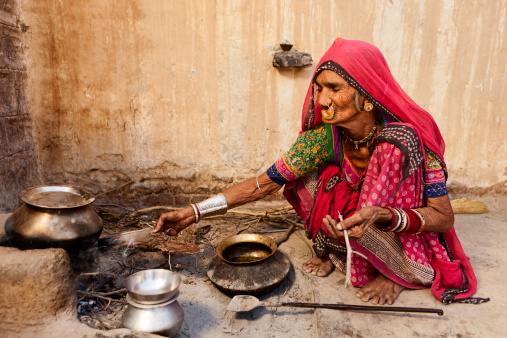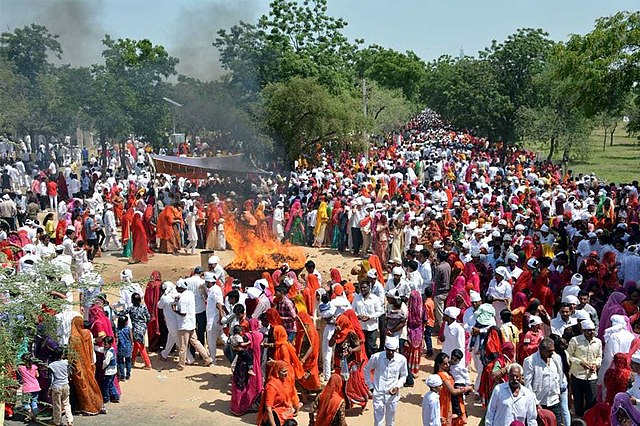
The Bishnoi Caste: A Look into their History, Culture, and Beliefs
The Bishnoi caste is a community of people who follow the teachings of Guru Jambheshwar,

The Bishnoi caste is a community of people who follow the teachings of Guru Jambheshwar, a 15th-century saint and social reformer. The word “Bishnoi” is derived from the Hindi word “bis” meaning twenty and “noi” meaning nine. The Bishnoi community is known for their strict adherence to 29 principles, which include beliefs in non-violence, truthfulness, and respect for all living beings.
Gaining an appreciation for the distinct identity and contributions of the Bishnoi minority to Indian civilization requires knowledge of their history, culture, and beliefs.
History of the Bishnoi Caste
In the Indian state of Rajasthan in the 15th century, Guru Jambheshwar established the Bishnoi community. The environmentalist, animal rights activist, and vegetarian Guru Jambheshwar advocated for change in society by spreading his message. In his view, people should treat all other forms of life with dignity and respect.
During the Mughal Empire, the Bishnoi people were persecuted because of their environmental stance. In 1730, 363 Bishnoi men, women, and children gave their lives to prevent the king’s soldiers from cutting down trees. The Bishnoi people’s dedication to protecting their natural surroundings is shown by the Khejarli Massacre.
In India’s fight for freedom, the Bishnoi community was instrumental in the non-cooperation campaign spearheaded by Mahatma Gandhi. In addition, they participated in the Bhakti movement, which centred on a fervent love for and devotion to the Supreme Being.
Culture of the Bishnoi Caste

The Bishnoi people have a rich culture that is founded on their long-held traditions and customs. Men wear white turbans, dhotis, and long shirts, while ladies wear ghagra cholis and saris. The Bishnoi people are well-liked for their welcoming nature and uncomplicated lifestyle.
Among the many festivals and events celebrated by the Bishnoi people are Teej, Gangaur, and Diwali. Traditional dancing, music, and cuisine are all a part of the festivities during these celebrations.
Artisans and craftspeople are abundant among the Bishnoi people. Pottery, weaving, and embroidery are well-known specialties of theirs. Oral storytelling and folk music are also important parts of Bishnoi culture.
Beliefs and Practices of the Bishnoi Caste
Guru Jambheshwar laid down 29 tenets that the Bishnoi community adheres to. Nonviolence, honesty, and compassion are three of these guiding ideals. The Bishnoi religion and culture encourages its members to abstain from all forms of meat and alcohol.
The Bishnoi people place a high value on protecting and preserving their natural surroundings. They hold the view that nature, especially trees and animals, is sacrosanct and must be safeguarded at all costs. The Bishnoi people have played a crucial role in the preservation of rare animals like the blackbuck and the chinkara via the establishment of various wildlife reserves.
Animal rights and respect for the environment are also highly valued in Bishnoi culture. They don’t wear leather or utilise other materials derived from animals. The Bishnoi value nature highly and advocate for mankind to maintain a balance with their natural surroundings.
Bishnoi Caste in Modern Times
Urbanisation, deforestation, and industrialisation are just a few of the modern-day threats to the Bishnoi people. The Bishnoi people have been engaged in a prolonged struggle to avert these dangers to their homeland and ecology.
There is an ongoing effort to protect and popularise Bishnoi customs and history. Several non-governmental organisations (NGOs) and other groups are actively preserving the natural world in Bishnoi-controlled territories. The Bishnoi people also do a lot to promote eco-tourism and green growth.
The Bishnoi community has significantly influenced Indian civilization in the areas of environmental preservation, art, and culture. It is important to honour and maintain the rich history and distinctive character of the Bishnoi people.
Conclusion
The Bishnoi are a distinct ethnic group with a long and storied history. Their commitment to protecting the planet, caring for animals, and respecting the natural world is an example to follow. To foster global peace and sustainability, it is essential to protect and honour the world’s many cultural traditions.
We hope you’ve gained some insight into Bishnoi history, culture, and religion from this page. Please take the time to research the Bishnoi and their impact on modern-day India.
You Can Also Read Here How Negin Behazin Fought for Her Rights Against Dignity Health
